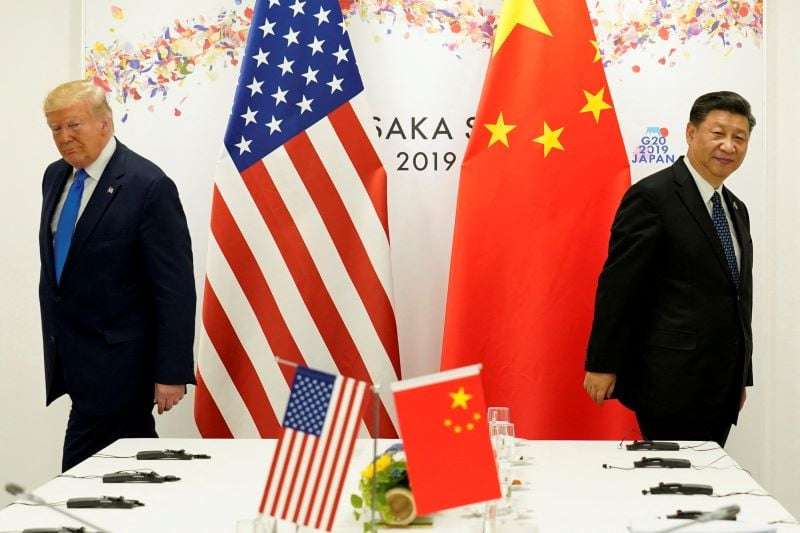Introduction
As Donald Trump secures another term as the US President, the global political landscape is set to experience significant shifts. While China has expressed its intent to work with the US based on mutual respect, the anticipation of heightened rivalry over trade, technology, and security issues looms large. This article delves into the potential future of US-China relations, the expected strategies from both sides, and the global implications of a renewed Trump administration.
China’s Official Stance on US Relations
Mutual Respect and Cooperation
China has reiterated its commitment to maintaining stable relations with the US. According to Mao Ning, the spokesperson for China’s foreign ministry, China’s policy towards the US remains consistent, emphasizing mutual respect and win-win cooperation. Despite the anticipated challenges, China aims to handle the bilateral relationship with the same principles it has upheld in the past.
Preparedness for Uncertain Future
Chinese strategists, however, foresee a rocky road ahead. With Trump known for his fiery rhetoric and aggressive policies, Beijing is bracing for potential conflicts. Tong Zhao, a senior fellow at the Carnegie Endowment for International Peace, suggests that while Trump’s victory is not the preferred outcome for China, it is not entirely unexpected. The Chinese leadership is likely to maintain a facade of cordiality while bolstering its strategic capabilities.
Expected US Policies Under Trump
Trade and Tariffs
One of the most significant concerns for China is the potential for a renewed trade war. Trump has previously proposed tariffs exceeding 60% on Chinese imports and suggested revoking China’s most-favored-nation trading status. Such measures could severely impact China’s economy, which relies heavily on trade with the US.
Economic Impact
China exports goods worth over $400 billion annually to the US. The imposition of hefty tariffs could disrupt this trade, causing economic ripples that could affect global markets. Analysts like Zhao predict that China will strive for greater technological and economic self-sufficiency to counter these threats.
Technological Decoupling
Another area of concern is the decoupling of technology and supply chains. Trump’s administration is expected to push for reducing reliance on Chinese technology, further straining economic relations. This move could hinder China’s economic growth and potentially destabilize its social and political fabric.
China’s Strategic Adjustments
Strengthening Global Ties
In response to the anticipated US policies, China is likely to fortify its relations with other global powers. Strengthening ties with the Global South, Europe, and Northeast Asian countries will be crucial for China to mitigate the impact of a US-China trade war.
Alliances and Partnerships
Chinese President Xi Jinping and Indian Prime Minister Narendra Modi have recently reached a rare rapprochement, signaling a potential strengthening of Sino-Indian relations. Additionally, Beijing has been extending olive branches to the new Japanese administration, aiming to improve ties after years of strain.
Economic Self-Sufficiency
China’s leadership is expected to intensify efforts towards economic self-sufficiency. This includes investing in domestic technologies and reducing dependency on foreign imports. Such a strategy not only shields China from external economic pressures but also positions it as a more self-reliant global player.
Global Power Dynamics
Filling the Vacuum
Trump’s isolationist foreign policy could create a power vacuum on the global stage. China is poised to fill this gap, expanding its influence in regions where the US might retract. This includes increasing its presence in international agreements and multilateral organizations.
Taiwan Tensions
Taiwan remains a contentious issue in US-China relations. Trump’s transactional approach to Taiwan, suggesting that it should pay the US for defense, has unsettled Beijing. Any significant shift in US policy towards Taiwan could escalate tensions further, complicating the already fraught relationship.
Conclusion
The re-election of Donald Trump as the US President sets the stage for a complex and potentially contentious period in US-China relations. While China remains committed to cooperation based on mutual respect, the anticipated policies from the Trump administration could lead to significant economic and strategic challenges. Strengthening global alliances and pushing for economic self-sufficiency will be key strategies for China as it navigates this new era of superpower rivalry.
FAQs
1. How does China plan to handle relations with the US under Trump?
China aims to handle relations with the US based on mutual respect, peaceful coexistence, and win-win cooperation, despite anticipating challenges.
2. What are the major concerns for China with Trump’s re-election?
China is particularly concerned about potential tariffs on Chinese imports, technological decoupling, and heightened trade tensions under Trump’s administration.
3. How might Trump’s policies impact global power dynamics?
Trump’s isolationist policies could create a power vacuum on the global stage, which China is likely to exploit by expanding its influence in various regions.
4. What strategies will China employ to mitigate the impact of US policies?
China is expected to strengthen global ties, particularly with the Global South, Europe, and Northeast Asian countries, and push for greater economic self-sufficiency.
5. How is Taiwan a factor in US-China relations under Trump?
Trump’s transactional approach to Taiwan, including defense payments, has unsettled Beijing. Any significant shift in US policy towards Taiwan could escalate tensions between the US and China.



